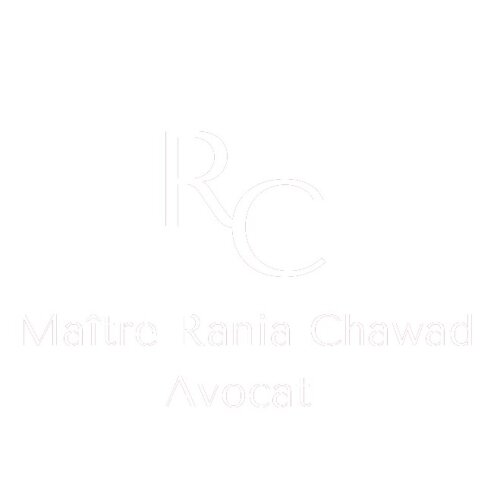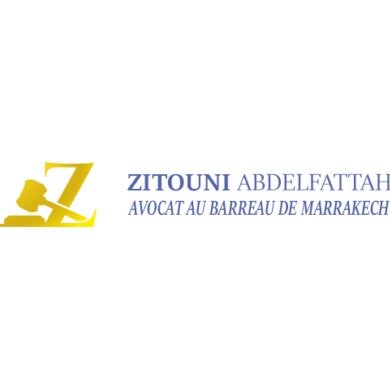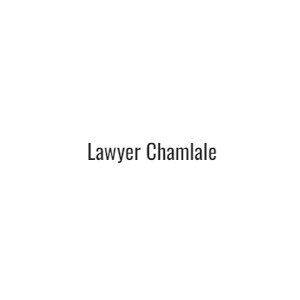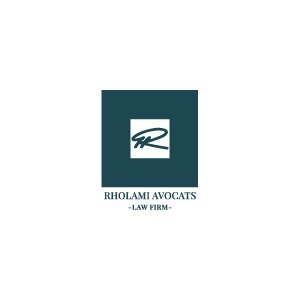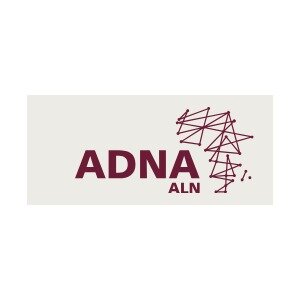Best Corporate Governance Lawyers in Morocco
Share your needs with us, get contacted by law firms.
Free. Takes 2 min.
Or refine your search by selecting a city:
List of the best lawyers in Morocco
About Corporate Governance Law in Morocco
Corporate governance refers to the systems, principles, and processes by which companies in Morocco are directed and controlled. In Morocco, corporate governance is essential for promoting transparency, accountability, and long-term business success. Moroccan law mandates certain standards for how companies are managed, including the relationship between shareholders, the board of directors, and other stakeholders. The purpose is to ensure ethical business practices, safeguard the interests of investors, and attract both local and international investment.
Why You May Need a Lawyer
Navigating corporate governance matters in Morocco can be complex. There are several situations where consulting with a legal expert is highly beneficial, such as:
- Setting up a new company or joint venture and ensuring compliance with local regulations
- Drafting or amending company bylaws and internal governance documents
- Resolving disputes between shareholders or directors
- Advising on mergers, acquisitions, restructuring, or dissolution of a company
- Ensuring compliance with anti-corruption and transparency requirements
- Implementing risk management policies and internal control systems
- Advising on reporting obligations to regulatory authorities
- Investigating and addressing breaches of directors’ duties or conflicts of interest
A corporate governance lawyer ensures that your business complies with Moroccan laws, helps prevent legal disputes, protects your interests, and creates value through good governance practices.
Local Laws Overview
Corporate governance in Morocco is governed by several statutes and regulations. The primary legal texts include the Moroccan Commercial Code, the Law on Public Limited Companies, regulations issued by the Moroccan Capital Market Authority (AMMC), and the Moroccan Corporate Governance Code.
Key aspects include:
- Structure of Companies: Companies may be formed as public limited companies (SA), private limited companies (SARL), or other legal forms, each with distinct governance requirements.
- Board Composition: Rules on the number, roles, and responsibilities of directors; requirements for board committees such as audit or remuneration committees for certain companies.
- Shareholders’ Rights: Protection of minority shareholders, procedures for shareholder meetings, voting rights, and access to company information.
- Transparency and Disclosure: Obligations to provide financial and non-financial reporting, including annual reports and disclosures to the AMMC for listed companies.
- Internal Control and Risk Management: Requirements for effective internal controls and risk management frameworks.
- Related Party Transactions: Regulations to manage and disclose transactions involving directors, officers, or significant shareholders.
- Corporate Social Responsibility: Encouragement of ethical conduct, environmental responsibility, and social engagement, particularly for large or listed companies.
Failure to comply with these laws can result in regulatory sanctions, fines, and reputational damage for the company and its directors.
Frequently Asked Questions
What is corporate governance and why is it important in Morocco?
Corporate governance is the framework of rules and practices by which a company is managed and controlled. It is important in Morocco to ensure companies operate transparently, protect shareholder interests, and comply with legal standards.
Who is responsible for corporate governance in a Moroccan company?
The board of directors is primarily responsible for corporate governance. They are supported by internal committees, company management, and, in some cases, external auditors and regulatory bodies.
What are the main corporate structures in Morocco?
The most common company structures are the public limited company (Société Anonyme or SA) and the private limited company (Société à Responsabilité Limitée or SARL). Each has specific governance requirements.
Are there specific governance rules for listed companies?
Yes, listed companies in Morocco must comply with additional regulations from the Moroccan Capital Market Authority (AMMC), including stricter transparency and reporting obligations.
Do Moroccan laws protect minority shareholders?
Yes, Moroccan law provides mechanisms to protect the rights of minority shareholders, including the right to attend general meetings, vote on major decisions, and challenge certain actions in court.
What is the role of the Moroccan Corporate Governance Code?
The Corporate Governance Code provides best practice guidelines for listed and non-listed companies in Morocco. While some recommendations are mandatory, others are advisory, promoting transparency and accountability.
How often must boards meet under Moroccan law?
Boards of directors are required to meet at least once every quarter. The frequency may increase depending on the company’s bylaws or specific legal requirements.
Is corporate social responsibility (CSR) mandatory in Morocco?
CSR is encouraged and promoted, especially for publicly traded and large companies, but it is not legally mandatory for all companies.
What are the consequences of non-compliance with governance laws?
Non-compliance can lead to regulatory investigations, fines, personal liability for directors, and reputational harm to the company.
Can a foreigner be a director or shareholder in a Moroccan company?
Yes, foreigners can serve as directors or shareholders in most Moroccan company structures, subject to compliance with relevant laws and sector-specific regulations.
Additional Resources
If you need more information or assistance regarding corporate governance in Morocco, consider the following resources:
- Moroccan Capital Market Authority (AMMC) - Regulates listed companies and financial markets
- Moroccan Ministry of Industry and Trade - Oversees business registration and company law
- Moroccan Bar Association - Can help you find a qualified corporate governance lawyer
- Confédération Générale des Entreprises du Maroc (CGEM) - National employers’ association providing good governance guidelines
- Official Bulletin of Morocco - Publishes updates on laws and regulations
Next Steps
If you require legal advice in the area of corporate governance in Morocco, consider the following steps:
- Assess your specific needs, such as company formation, shareholder disputes, or regulatory compliance
- Gather all relevant company documents, contracts, and previous correspondence
- Contact a qualified Moroccan lawyer experienced in corporate governance
- Explain your situation thoroughly during your consultation and be clear about your objectives
- Follow the guidance provided by your legal expert, including implementing required changes in your company’s governance practices
- Monitor ongoing legal developments and ensure your company stays compliant with Moroccan law
Being proactive and seeking professional legal advice helps your company operate smoothly, avoid disputes, and build trust with investors and other stakeholders.
Lawzana helps you find the best lawyers and law firms in Morocco through a curated and pre-screened list of qualified legal professionals. Our platform offers rankings and detailed profiles of attorneys and law firms, allowing you to compare based on practice areas, including Corporate Governance, experience, and client feedback.
Each profile includes a description of the firm's areas of practice, client reviews, team members and partners, year of establishment, spoken languages, office locations, contact information, social media presence, and any published articles or resources. Most firms on our platform speak English and are experienced in both local and international legal matters.
Get a quote from top-rated law firms in Morocco — quickly, securely, and without unnecessary hassle.
Disclaimer:
The information provided on this page is for general informational purposes only and does not constitute legal advice. While we strive to ensure the accuracy and relevance of the content, legal information may change over time, and interpretations of the law can vary. You should always consult with a qualified legal professional for advice specific to your situation.
We disclaim all liability for actions taken or not taken based on the content of this page. If you believe any information is incorrect or outdated, please contact us, and we will review and update it where appropriate.
Browse corporate governance law firms by city in Morocco
Refine your search by selecting a city.







